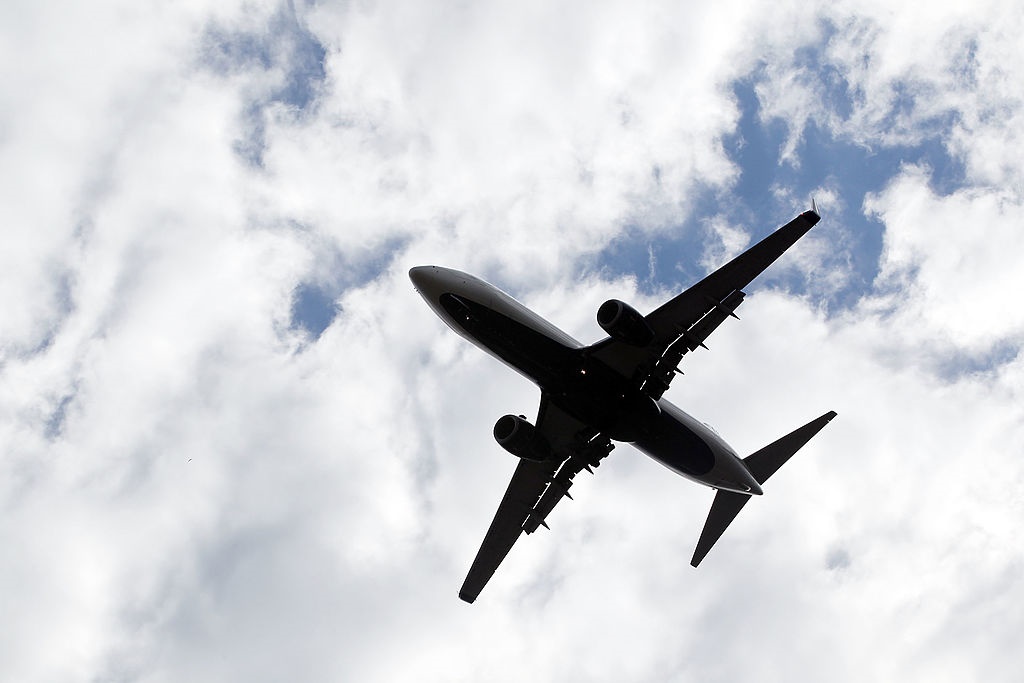
- The pandemic will have no long-term impact on the need for new aircraft, according to an outlook report from Airbus.
- The market is only expected to return to pre-pandemic levels between 2023 and 2025.
- Airbus has returned to profit and has delivered 460 aircraft for the first 10 months of the year, but US rival Boeing is still losing money.
The pandemic will have no long-term impact on the need for new aircraft, according to a market outlook released Saturday by European plane maker Airbus, which foresees greener fleets emitting less CO2.
There would be demand for 39 020 new passenger and freighter aircraft by 2040, bringing the global fleet to 46 720, the company said, releasing its outlook ahead of the Dubai Airshow's opening on Sunday.
The forecast is not far off the 39 210 planes Airbus estimated in its 20-year market forecast issued in September 2019 - before a Covid-induced downturn which will still leave airlines with close to $52 billion in losses this year.
While Airbus has returned to profit and delivered 460 aircraft in the first 10 months of the year, its American rival Boeing is still losing money and has supplied just 268 planes.
Yet Boeing projects new deliveries in the industry to total 43 610 by 2040, or roughly the same as the 43 315 forecast by aviation data firm Cirium.
Global air traffic has started to bounce back from the worst of its pandemic decline, though in October it was still around half the level before the global health crisis idled aircraft.
"Our industry is extremely resilient, the only thing is that we've lost two years of traffic because of the pandemic," Christian Scherer, chief commercial officer and head of Airbus International, told reporters in Dubai.
The market is only expected to return to pre-pandemic levels between 2023 and 2025.
Domestic air travel is doing better - which benefits Airbus and its A320 family of narrow-body aircraft.
"While having lost nearly two years of growth over the Covid period, passenger traffic has demonstrated its resilience and is set to reconnect to an annual growth of 3.9% per year," Airbus said in the statement.
"The middle classes, who are the likeliest to fly, will grow in number by two billion people to 63 percent of the world's population."
Under pressure
Growth would be fastest in Asia, with China's domestic market becoming the largest.
Close to 40% of the industry's new planes would be for replacement, according to Airbus, which sees demand shifting "from fleet growth to the accelerated retirement of older, less fuel-efficient aircraft".
Compared with previous generations of planes the newest versions save 15%-20% on fuel, reducing the carbon emissions which contribute to global warming.
With the industry under pressure to further reduce its carbon footprint, Airbus will present at the airshow a model of its ZEROe concept hydrogen-burning aeroplane which would eliminate CO2 emissions.
Boeing will show off its ecoDemonstrator aircraft, a version of the 737 MAX used to try out new and cleaner technologies.
"By 2040 the vast majority of commercial aircraft in operation will be of the latest generation, up from some 13% today," the Airbus statement said.
The Dubai Airshow starts while the Glasgow COP26 climate conference to limit global warming is ending.
Airlines will have to invest in newer planes that pollute less to meet a pledge by the International Air Transport Association (IATA) to reach net zero carbon emissions by 2050.
Replacement of aircraft was "today's most significant driver for decarbonisation," said Scherer.
"The world is expecting more sustainable flying and this will be made possible in the short-term by the introduction of most modern aeroplanes," he said in the Airbus statement.
Three-quarters of the foreseen industry demand would be from what Airbus calls "small aircraft", which include its single-aisle A220 and A320, as well as Boeing's 737.
About 5 300 aircraft would fall into the medium category which includes the A330neo and the future A321 XLR - which has extended range - while Airbus foresees industry demand for "large" aircraft at around 4,000 over the two-decade period.
This segment includes its widebody A350, as well as Boeing's 787 Dreamliner and 777.
On the cargo side, Airbus sees industry demand for 880 newly built freighters.
Get the biggest business stories emailed to you every weekday. Go to the Fin24 front page.




 Publications
Publications
 Partners
Partners












